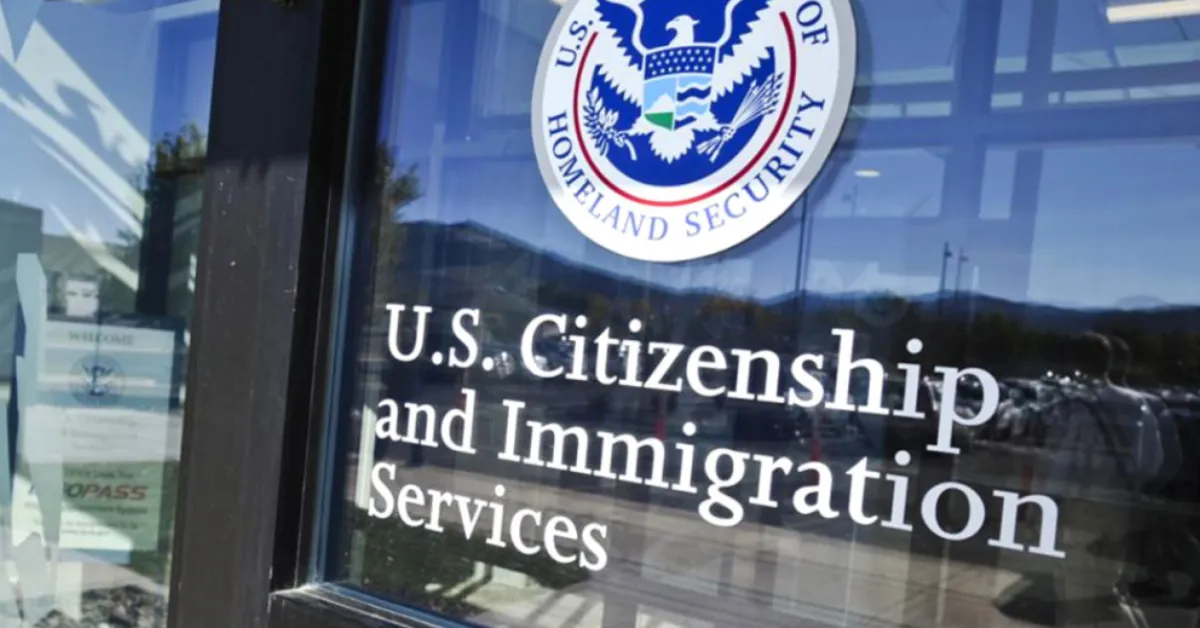DHS Sends Erroneous Self-Deportation Notices to US Citizens

The Department of Homeland Security (DHS) is under intense scrutiny after mistakenly sending self-deportation instructions to individuals, including US citizens.
This has raised concerns about the agency's protocols for implementing immigration enforcement measures. The incident, which has sparked alarm and confusion, underscores the potential for error in the mass dissemination of deportation-related directives under the Alien Enemies Act (AEA). The errant emails, instructing recipients to leave the United States immediately, were sent to individuals who were not intended to receive them, prompting immediate backlash and questions about the accuracy and oversight of DHS communications.
Nicole Micheroni, an immigration attorney in Massachusetts and a US citizen, received one of these notifications. The email stated, "It's time for you to leave the United States. DHS is now exercising its discretion to terminate your parole. Unless it expires sooner, your parole will terminate 7 days from the date of this notice."
Micheroni, who has no parole status, initially dismissed the email as an error. "It caught me a little off-guard," she said, noting that such communications are typically reserved for her professional work. "I can't believe they are just sending this out to those it just doesn't apply to."
The email warned recipients not to remain in the United States, stating, "Do not attempt to remain in the United States – the federal government will find you. Please depart the United States immediately."
Sent from a no-reply government email address, the notice was formatted as a single block paragraph. Micheroni is awaiting clarification from DHS and expresses concern that such emails could instil fear, even among those not subject to deportation orders. Aaron Reichlin-Melnick, a senior fellow at the American Immigration Council, emphasizes the potential impact of these errors.
"This is the kind of thing that can send a lot of fear through communities. The government has a responsibility to slow down and make sure it gets it right in each case," he commented on social media.
The timing of these errors coincides with the implementation of new measures aimed at streamlining immigration enforcement. DHS recently launched the Customs and Border Protection (CBP) Home App, which includes a self-deportation reporting feature. The app is designed to conserve resources and focus on individuals deemed a threat to public safety. According to DHS, the app offers undocumented immigrants the opportunity to self-deport voluntarily, preserving the possibility of returning legally in the future.
US Secretary of Homeland Security Kristi Noem has defended the initiative, asserting it restores "integrity to our immigration system." However, opponents argue that the app and accompanying measures further complicate an already contentious issue. Further compounding the controversy is DHS's new Alien Registration Requirement (ARR), which mandates undocumented immigrants to register with the government within 30 days or face severe penalties.
Effective as of April 11, this regulation represents a significant shift in immigration policy. The rule has been criticized for its potential to exacerbate tensions and confusion among immigrants. Adding to the confusion, US Immigration and Customs Enforcement (ICE) recently posted—and swiftly deleted—a social media message declaring its commitment to stopping "illegal ideas" from crossing the border.
While DHS clarifies that the post was meant to reference "intellectual property," the incident highlights the agency's vulnerability to messaging errors and their potential repercussions. A senior DHS official explains that notices were sent to individuals without lawful status but acknowledged that emails may have inadvertently reached American citizens due to incorrect contact information provided by undocumented immigrants.
"CBP is monitoring communications and will address any issues on a case-by-case basis," he assures.
The root of these developments can be traced back to the Trump administration's reactivation of the Alien Enemies Act of 1798. This legislation grants the president sweeping powers to detain or deport noncitizens during times of conflict. Under this authority, Kristi Noem recently announced the termination of the Cuba, Haiti, Nicaragua, and Venezuela (CHNV) parole program.
The move will strip legal status from approximately 532,000 individuals who benefited from the program under President Biden. Effective April 24, 2025, this termination marks 30 days since the notice was published in the Federal Register. In a statement defending the decision, a DHS representative describes the policy shift as "a return to common-sense policies, a return to public safety, and a return to America First."














Add new comment